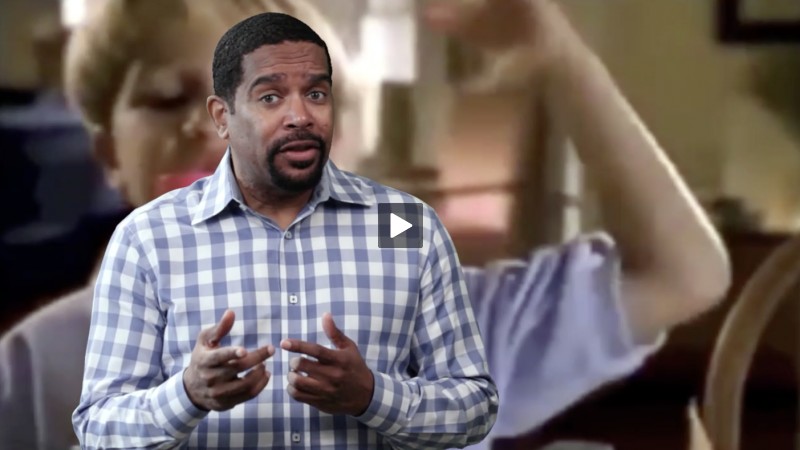How to Make Teenagers Financially Resilient?
- Details
- Written by Will from Holland
- Category: Articles

As a parent, you're the role model...
From app payments to contactless payments: adolescents use a galore of payment methods. But according to experts, paying contactless rather than cash teaches your kids less about the value of money.
So how do you make your child financially resilient in this digital day and age?
So how do you make your child financially resilient in this digital day and age?
First and foremost, you need to be a good role model. If you are smart with your money, chances are your kids will be(come), too.
Many of us don't keep track of where our money goes, especially when it comes to the little transactions. But little expenses rack up and can crash your budget pretty bad. And if that happens to grown-ups, imagine what that can do to your unseasoned child?
Twenty contactless or app payments per month is very normal for most teenagers, while they often have no idea how much they're spending exactly.
Needless to say, young people need supervision and help developing good personal finance skills and learn how to become healthy skeptics when it comes to anyone who impacts their money or well-being.
Even though there's a growing number of states requiring financial literacy education in schools, most kids are not exposed to personal finance education in school. Many parents either don't have the financial skills themselves or may feel uncomfortable talking about it, so many kids are not exposed to learning the right money skills at home.
Add artificial intelligence, YouTubers and influencers to the mix, and you may get a lethal cocktail: How do your kids learn about money? Whos' teaching them? Who can they trust? Influencers and peers hold real power over your kids and their financial behaviors, and believe you me, that's usually not positive.
Take it a step further… Are you comfortable talking about payment apps or crypto? If you don't guide the process, you know they will find information through earlier mentioned channels.
So, you must do the right things, gain the needed skills, and make the right choices around money yourself, so you can be a good role model for your kids, and then pass on that behavior and skill.
Use FoolProof's resources to brush up your skills, if needed. Our articles and videos may help, but if you want to dive in deep, head to FoolPoof Fundamentals now. They're 15-minute mini educational modules on financial topics.
Not Everyone Goes to the Caribbean
Next, pass these skills on to your kids, starting with the right perception around money.
Your child can get a distorted view of reality through social media. You often only see the extremes: the successes and the radical mistakes (think big cars and mansions versus bankruptcy).
As said, influencers (what's in a name?) have a lot of power on a child's financial choices and decisions.
If your kids are on social media a lot, like most kids, they start comparing themselves to these "peers" and their brain will think this is the norm. As said, influencers (what's in a name?) have a lot of power on a child's financial choices and decisions.
You need to take back that role. Start the conversation with your child early. And not in the sense of: "Twenty contactless payments are too much!". But rather: "What do you spend your money on? Have you ever regretted your purchase? Why do you think it is important to realize that?" And this: "Who, do you think, is paying these influencers to say these great things about a product or service? Can you believe what they say as the gospel truth?"
Open conversations with peers can also be valuable for your child. Teenagers then see that they are not the only ones without a swimming pool in the garden or a big car in the driveway.
Not every family takes a Caribbean vacation, and there's nothing wrong with that.
Don't Stalk Your Kids
You can keep an eye on your child's payment app or bank account until their eighteenth birthday (or longer), but how much did you like parental control growing up?
Get your kids started with the right banking relationship and tools, guide them through the process, teach them the needed skills, but then start letting go as they grow into using money and the management tools.
Sure, in the beginning, you'll need to be guarding transactions close and carefully, but do realize that ultimately, your child may make different choices than you do. That is not necessarily good or bad.
There needs to be room for mistakes, too. Make sure you keep the conversation going, always, so your child dares to ask you questions about money, or feel empowered to come forward when they do make financial mistakes or get into trouble. Then, when trouble occurs, don't punish or be mad. Make it into a learning experience by helping them see the problem and let them come up with a solution themselves.
An example? Has your teenager spent too much on in-app game purchases so you can't afford their monthly $10 cellphone bill? Talk with your child about these emotional expenses, and discuss possible solutions, like an interest free loan.
Make sure they understand how the loan works: If your child gets $10 pocket money every month, tell them: "I will lend you $10, but I want it repaid in 2 months."
Your child will have 5 dollars less for two months. That's half of their income, and that is probably going to hurt a little.
On the flipside, your child will learn about opportunity cost and that a loan means that you will temporarily receive less money as you pay the installments. They will probably think twice before purchasing another avatar without consulting their budget first.
No Money = No Money
What if your child really wants to buy a new gadget or new clothes?
Don't just automatically buy such items for your kids, nor should you loan them the money. That ruins the learning experience. Be clear about that as a parent and say to your children: "I'm simply not lending you any." They might not like you for a while, but that's just the way it is.
Also tell them that it's not about the sweater not being your taste. Instead, make a plan together as to how your child can come to getting the item. Work a job or do chores and save up money. That really adds value to money, and your child will better understand how much effort will go into the purchase of larger items.
Share Your Money Mistakes
We started FoolProof with the motto: "We don't learn, so you can!" We made money mistakes, and shared our experiences in detail. There is no shame, just learning.
As a parent, you're also a role model. Children unconsciously learn a lot from you, your choices and your behavior.
If you go to the store with a shopping list of three items, and you come back with ten items, what does that show your kids? Sure, you can run into items you forgot you needed, but talk that through and explain how you came to that choice. That shopping list does save money every time, so it's an important skill to pass on to your kids.
Finally, be open to the fact that anyone can fall into the temptation of impulsive purchases. An if you ever make a real money mistake, share that story with your child. Don't laugh it off, but learn from the mistake together and move on smarter.
So, there's a start to building your kids' money skills. Check our other resources for additional money skills for kids, and in the meantime, please do share your experiences with us. That's how we came to our motto after all, sharing learning experiences can truly help others.
Good luck!
Will


































